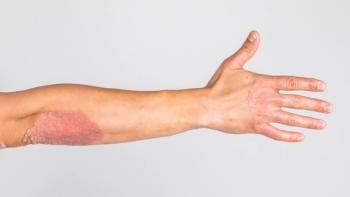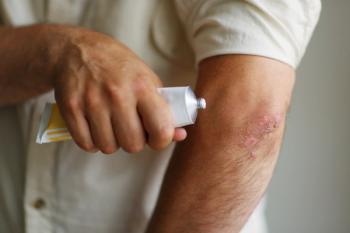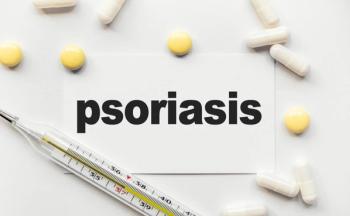
Abstract Recap: Cost-Effectiveness and Budget Impact of Tildrakizumab for First-Line Treatment of Plaque Psoriasis
Tildrakizumab, a monoclonal antibody that targets IL-23, is one of several systemic medications available to treat plaque psoriasis. In an abstract from the Academy of Managed Care Pharmacy Nexus 2019 meeting, held October 29 to November 1, 2019, in National Harbor, Maryland, Carrico and colleagues evaluated the monthly cost and budget impact of using tildrakizumab as first-line treatment for moderate to severe plaque psoriasis. They concluded that tildrakizumab is a cost-effective option.1
Background
Systemic medications used to treat plaque psoriasis include tildrakizumab, apremilast, and biologic medications. Comparing the affordability of these medications is helpful for providers and payers, the investigators noted.1
The objective of this study was to assess the monthly cost with a 75% improvement in Psoriasis Area Severity Index (PASI) from baseline, using tildrakizumab as first-line therapy for moderate to severe plaque psoriasis. The investigators also estimated the impact of introducing tildrakizumab on the budget of a hypothetical US health plan.1
Methods
The investigators constructed a Markov model to evaluate the incremental monthly costs of tildrakizumab and other first-line treatments (adalimumab, apremilast, brodalumab, etanercept, guselkumab, infliximab, ixekizumab, secukinumab, and ustekinumab) with a 75% or greater improvement in PASI from baseline compared with topical treatment, phototherapy, or other systemic treatments. The model included 5 health states: (1) 0% to 49% improvement in PASI, (2) 50% to 74% improvement in PASI, (3) 75% to 89% improvement in PASI, (4) 90% to 100% improvement in PASI, and (5) death. Treatment responders were defined as patients with a 75% or greater improvement in PASI from baseline. Responders continued to receive their current therapy, and nonresponders received either second-line therapy or a mixture of topical therapy, phototherapy, and other systemic treatments.1
The investigators estimated the effect of introducing tildrakizumab (annual uptake of 1%) on the budget of a US health plan with 1 million members over 5 years. They used the results of published studies and clinical trials, prescription data, and 2019 drug costs to construct the model and estimate incremental annual health plan and per-member-per-year costs.1
Results
The model calculations showed incremental monthly costs (for PASI ≥75 responses) of $3559 for brodalumab, $3762 for infliximab, $4621 for apremilast, $4895 for tildrakizumab, $5522 for secukinumab, $5712 for guselkumab, $5754 for adalimumab, $5764 for ixekizumab, $5916 for ustekinumab, and $6180 for etanercept. Annual costs were lower for tildrakizumab than for etanercept, adalimumab, secukinumab, ixekizumab, guselkumab, and ustekinumab. For the hypothetical health plan with 1 million members, 1048 of whom were receiving apremilast or biologics, with the introduction of tildrakizumab, health plan cost was reduced by $964,763 (cumulatively over 5 years) and per-member-per-year cost was reduced by $0.19.1
Conclusions
Tildrakizumab is more cost-effective than adalimumab, etanercept, guselkumab, ixekizumab, secukinumab, and ustekinumab, concluded the authors. They added that introducing tildrakizumab might reduce psoriasis treatment costs for a US health plan.1
Reference
1. Carrico J, Jia X, Zhao Y, et al. Cost-effectiveness and budget impact of tildrakizumab for the treatment of moderate to severe plaque psoriasis using 2019 drug costs [abstract L14]. J Manag Care Spec Pharm. 2019;25(suppl 10-a):S79. doi: 10.18553/jmcp.2019.25.10-a.s1.
Newsletter
Stay ahead of policy, cost, and value—subscribe to AJMC for expert insights at the intersection of clinical care and health economics.









